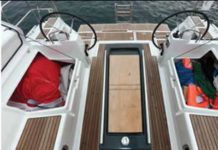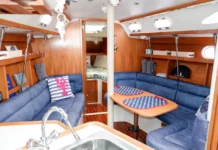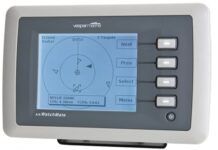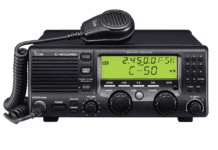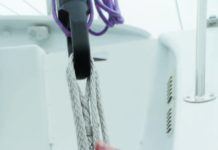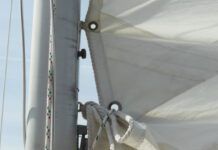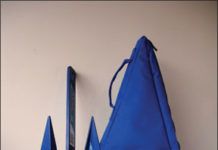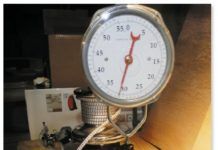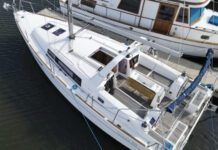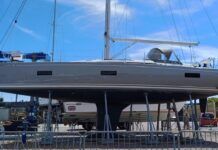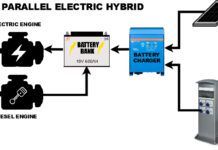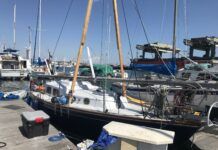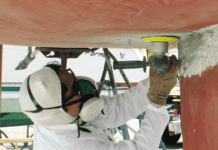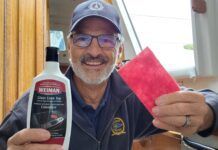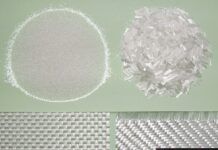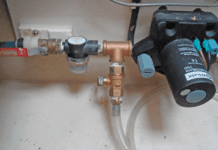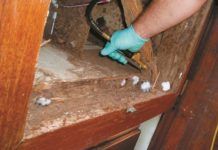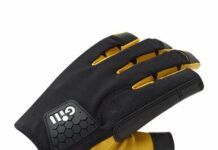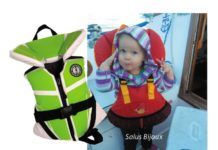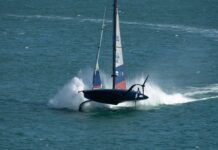If the weather this time of the year is cold enough for you to give up sailing for a few months and curl up in a warm place, there’s a good chance that the electronic equipment on your boat would appreciate a little of the same treatment. A little extra care when the weather is cold can add considerably to the useful life of most electronics.
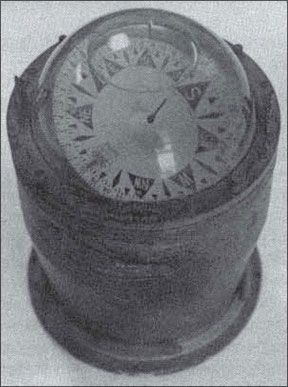
288
Unless a piece of gear is totally sealed against the environment, the atmosphere on the inside of the unit will be pretty much the same as the atmosphere on the inside of the rest of the boat. In the middle of winter, this can mean a lot of cold and condensation. Needless to say, condensation on the inside of your delicate electronics is not the best atmosphere for long life.
In addition, many modern electronics are equipped with liquid crystal displays. Most liquid crystal displays “freeze” at about the same temperature as water. You’ll know an LCD has frozen when it turns black and fails to function. Modern LCD’s should not be damaged by freezing. When the weather warms up, they’ll start operating again, according to electronics manufacturers.
At the same time, we’ve seen LCDs that, after freezing, have lost some definition – the numbers no longer have a sharp, clean edge, and seem to “bleed” slightly.
Warm, Dry and Happy
The safest course is to remove all the electronics from the boat that can easily be removed, and store them inside in a warm, dry environment. Once inside, don’t put electronics in an airtight plastic bag unless you put silica gel in the bag with them to absorb water vapor.
Silica gel is a dessican’t that is fairly readily available from chemical supply houses, usually sold only in multi-pound containers. A better source may be your mailbox: most pieces of electronic gear, as well as binoculars, cameras, and lenses, are usually shipped with packets of silica gel. They look about like a package of sugar, and you’ve thrown a lot of them away in your lifetime. Stop throwing them away.
You may also be able to get prepackaged silica gel from a local photo store. Silica gel can be reused almost indefinitely by periodic drying in a warm oven.
While it probably isn’t practical to remove bulkhead-mounted performance instrumentation such as knotmeters and wind indicators, your other types of gear – VHF radios, Loran sets, radio direction finders, and below decks mounted depth sounders – can and should be removed. Removing expensive electronics also makes the boat a less appealing target for vandals.
Batteries should be removed from electronics containing them. This includes gear such as man-overboard strobes as well as navigation equipment.
In a cold, damp climate such as New England or the Great Lakes region, the wiring in your boat should also get some attention before it gets too cold. Most exposed wiring connections such as terminal blocks are nickel plated, and fairly resistant to corrosion. They are not, however, immune to the development of surface oxidation, and surface oxidation can mean high resistance connections, and a subsequent loss in conductivity.
A water-displacing spray designed for use on electrical gear can go a long way to increasing the longevity of wiring connections. Get a silicone spray from an electrical supply house, rather than a local discount house, as some silicone concoctions are slightly electrically conductive, and should not be used for this application. Spray the back of your electrical panel, and as many exposed connections as you can reach in the boat. Any exposed copper wire should receive special attention, since copper quickly develops surface oxidation.
Don’t Forget The Compass
Another piece of navigation equipment that should get attention is the boat’s compass. Although most compasses are equipped with expansion chambers to prevent the development of bubbles in the compass liquid during cold weather, dramatic changes in temperature make real demands on compass construction. A compass can absorb several years of exposure before this becomes a problem, but prevention is the best course of action. If compasses can be removed from the boat, lay them up where they won’t be exposed to radical temperature changes. Don’t forget the compass in the RDF or your hand bearing compass. Chances are the construction of these compasses is inferior to that of the main steering compass, and cold weather will be even harder on them.
Unfortunately, most boat owners do not install electronics in a fashion that makes them easy to remove. If you’re thinking of adding to your electronics array this winter, give some thought to future preventive maintenance. It can cut both cost and bother in the long run.



